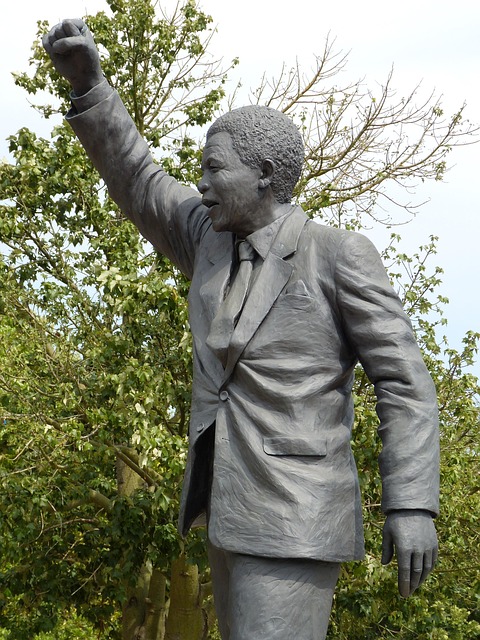Mental Health and Impaired Driving are interconnected issues requiring a nuanced approach. Traditional DUI penalties often overlook underlying mental health conditions that may contribute to poor judgment and decision-making, leading to repeat offenses. Alternative sentencing methods focus on treatment, support, and rehabilitation tailored to individual needs, addressing both Mental Health and Impaired Driving. Cognitive Behavioral Therapy (CBT) and Community-Based Programs are promising solutions. CBT modifies negative thought patterns and behaviors, while Community-Based Programs foster accountability and understanding through community involvement. These alternative approaches reduce recidivism, promote recovery, and enhance public safety by holistically addressing Mental Health and Impaired Driving issues.
In the intricate intersection of mental health and impaired driving, a growing movement advocates for alternative sentencing options beyond traditional DUI (Driving Under the Influence) sentences. This article delves into the complex relationship between these issues, exploring limitations in conventional sentencing methods. We present a holistic approach to addressing DUI offenses, highlighting cognitive behavioral therapy (CBT) as a transformative tool and community-based programs fostering restorative justice. By sharing success stories, we illustrate how alternative sentencing can disrupt the cycle of impaired driving and achieve lasting positive outcomes.
- Understanding Mental Health and Impaired Driving: A Complex Relationship
- Traditional DUI Sentencing: Its Limitations and Shortcomings
- Exploring Alternative Sentencing Options: A Holistic Approach
- Cognitive Behavioral Therapy (CBT) and DUI Offenders: Breaking the Cycle
- Community-Based Programs: Restorative Justice in Action
- Success Stories: Transformative Outcomes Through Alternative Sentencing
Understanding Mental Health and Impaired Driving: A Complex Relationship

Mental Health and impaired driving are two issues that, while distinct, often intersect in complex ways. It’s important to recognize that mental health conditions can significantly impact a person’s behavior and judgment, sometimes leading to situations where an individual might be behind the wheel while under the influence. Conditions like depression, anxiety, bipolar disorder, or schizophrenia can alter perception, impair decision-making abilities, and affect coordination—all of which are critical factors when operating a vehicle.
Understanding this relationship is crucial in developing alternative sentencing options for DUI cases. Traditional approaches often overlook the intricate link between mental health and impaired driving. Effective solutions require a nuanced understanding that accounts for these coexisting issues, ensuring that penalties are both just and supportive, while also addressing both the violation of traffic laws and any underlying mental health challenges faced by the offender.
Traditional DUI Sentencing: Its Limitations and Shortcomings

Traditional DUI sentencing often involves stiff penalties, including jail time, fines, and license suspension. While these measures aim to deter impaired driving, they may not adequately address the underlying issues that contribute to this behavior. One significant limitation is that standard sentences don’t account for the complex factors at play when an individual drives while impaired, particularly those with mental health conditions.
Impaired driving is not solely a result of alcohol or drug consumption; it can also be linked to undiagnosed or untreated mental health issues. Individuals struggling with conditions like depression, anxiety, or bipolar disorder may resort to substance abuse as a coping mechanism, leading to impaired judgment and decision-making. In such cases, strict punishment might not effectively address the root cause. Alternative sentencing methods, therefore, offer a more holistic approach by focusing on treatment, support, and rehabilitation tailored to each driver’s unique needs, including those with mental health and impaired driving issues.
Exploring Alternative Sentencing Options: A Holistic Approach

Exploring alternative sentencing options for DUI cases involves a holistic approach that considers not just the legal implications but also the individual’s well-being, especially when mental health is a factor. Traditional penalties often fail to address the root causes of impaired driving, such as underlying mental health conditions or substance abuse issues. By adopting alternative methods, courts can offer more tailored and effective solutions. This shift allows for a deeper understanding of the defendant’s circumstances, promoting a more compassionate and rehabilitative justice system.
Mental Health and Impaired Driving often go hand in hand, requiring a comprehensive strategy to address them together. Alternative sentences could include specialized treatment programs, counseling, or community-based interventions that focus on long-term behavior change. Such approaches not only provide support for the individual’s recovery but also enhance public safety by aiming to prevent future instances of impaired driving.
Cognitive Behavioral Therapy (CBT) and DUI Offenders: Breaking the Cycle

Cognitive Behavioral Therapy (CBT) offers a promising alternative approach to addressing Mental Health and Impaired Driving issues among DUI offenders. This therapy focuses on identifying and changing negative thought patterns and behaviors that contribute to substance abuse and reckless driving. By helping offenders understand and manage their impulses, CBT can break the cycle of impaired decision-making.
Through structured sessions, CBT guides participants to recognize triggers for drinking or drug use and develop healthier coping strategies. It empowers them to make better choices, reduce risk factors associated with relapse, and ultimately, avoid future incidents of impaired driving. This evidence-based method has shown significant potential in helping DUI offenders turn their lives around while promoting public safety on the roads.
Community-Based Programs: Restorative Justice in Action

Community-Based Programs offer a transformative approach to addressing DUI (drunk or drugged driving) offenses, emphasizing restorative justice principles. This model moves away from traditional punishment and focuses on healing and accountability within the community. By involving victims, offenders, and community members, these programs foster a sense of responsibility and understanding. For instance, an offender might be required to perform community service, such as volunteering at a local substance abuse support group or helping with traffic safety initiatives, allowing them to give back while gaining insights into the impact of their actions.
Restorative justice in DUI cases prioritizes addressing the root causes, including mental health issues and impaired driving due to substance abuse. Community-based interventions provide a supportive environment where individuals can access resources like counseling, treatment programs, and support groups tailored to their needs. This holistic approach not only reduces recidivism rates but also empowers communities to take an active role in preventing future incidents of impaired driving, ultimately enhancing public safety.
Success Stories: Transformative Outcomes Through Alternative Sentencing

Alternative sentencing approaches for DUI (drunk driving under influence) cases are proving to be game-changers, offering transformative outcomes that extend far beyond mere punishment. One of the most promising aspects is how these programs address the root causes, particularly mental health issues and impaired driving.
Success stories abound, with individuals who once struggled with substance abuse or underlying mental health conditions finding support and guidance through specialized alternative sentencing programs. These programs often include intensive counseling, therapy sessions, and mentorship, helping offenders develop coping strategies and long-term solutions. By focusing on rehabilitation rather than solely on punishment, these alternatives not only reduce recidivism rates but also foster personal growth and community reintegration. Such positive transformations demonstrate the potential of these innovative approaches in breaking free from the cycle of impaired driving.
In addressing Mental Health and Impaired Driving, it’s clear that traditional sentencing methods often fail to break the cycle of substance abuse. However, by exploring alternative options like Cognitive Behavioral Therapy (CBT) and community-based programs, we can achieve transformative outcomes. These holistic approaches not only address the root causes but also foster restorative justice, ultimately contributing to safer communities and improved lives for those affected by DUI offenses.






